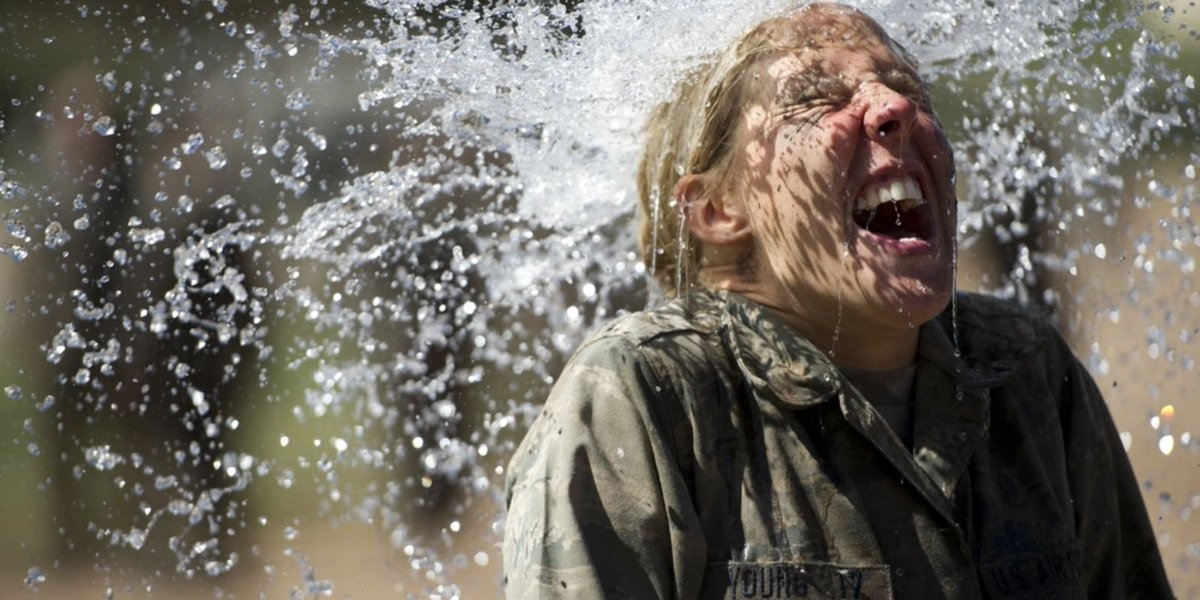WHAT TO KNOW BEFORE JOINING SPECIAL FORCES TRAINING
By Buddy Blouin
COMMENT
SHARE

Advertisement
Joining the American Armed Forces is an endeavor unlike any other, and while any form of service is admirable, those looking to join special forces have a unique road ahead of them. But before your first mission, you’ll need to qualify and pass special forces training. No training is going to be easy, but there's a reason so few are able to join these elite ranks. Explore some of what you can expect and how to prepare for special force training, no matter which branch you’re in.
Suggested read: After All the Hell Week Deaths, How Are They Making Navy Training Safer?
How Long Is Special Forces Training?
The length of your special forces training will depend on a number of things, but most notably, it will depend on which team you aim to join. Don’t be surprised if you have to attempt the training multiple times either. There’s a reason these groups are so exclusive. In total, there are around 70,000 special force members of the U.S. Special Operations Forces (SOF). This figure pales in comparison to the overall 1.4 million which make up the American Armed Forces as a whole. But there are several reasons for this, and some of it comes down to the rigorous training and standards that are in place. Here are the organizations you, too, can be a part of if you work hard and train accordingly, along with the length of time you can expect for training:- Air Force Special Tactics (35 weeks)
- Army Green Berets (63 weeks)
- Army Night Stalkers (5 to 28 weeks)
- Army Rangers (61 days)
- Marine MARSOC (9 months)
- Marine RECON (12 weeks)
- Navy SEALs (Over 30 months total)
- Navy SWCCs (9 weeks)
How To Train for Special Forces
A special forces training program is going to test you mentally, physically, and technically based on the skills necessary for you to complete your mission. Your best bet to survive even the hardest special forces training is to prepare your body and mind. Just as basic training is built to create a fighting force ready to take on anything, special forces training ups the ante and pushes troops to prepare for extreme situations on the battlefield. Running, muscle endurance, and dealing with harsh conditions while receiving little to no sleep are all a part of it. You’ll also want to hone your skills through whichever specialty you decide to pursue. There are courses available that are run by those in the community, such as Green Berets and Navy SEALs. Reaching out to those who have come before you is a great way to network and prepare for what you’ll have to endure through the experience of someone who's already been there.Advertisement
How Hard Is Special Forces Training?
Training can take weeks, months, or even years to complete. The days are filled with harsh conditions and constant testing of both the mental and physical aspects of being a troop in the U.S. military. If you’re going to be prepared for the most extreme conditions, you’ll have to train under intense conditions. America remains the best largely because it trains the best. No matter which special force you pursue, you can expect rigorous training crafted to make you the best you can be. While all of those who serve are tasked with completing extreme objectives under some of the harshest conditions, those operating in the U.S. Special Forces push this to the next level.How To Get Special Forces Training as a Civilian
Maybe you’re a civilian looking to join the military. Perhaps you’re just looking to change up your workout regimen. Either way, there are various civilian training special forces opportunities available. One of the most predominant names in the game is the SOF Prep Academy. Located in Chula Vista, California, you’ll have access to a variety of training environments, including:- The ocean.
- Private outdoor shooting ranges.
- Mountainous terrain reaching 5,000 feet in elevation.
- Training fields.
- An Olympic-sized pool.
- And much more.
The appearance of U.S. Department of Defense (DoD) visual information does not imply or constitute DoD endorsement. | Photo by Tech. Sgt. Eric Burks | 2D Audiovisual Squadron
Join the Conversation
Written by
Buddy Blouin
Buddy Blouin is a Contributing Writer at VeteranLife.com
Buddy Blouin is a Contributing Writer at VeteranLife.com
Advertisement
SHARE:



